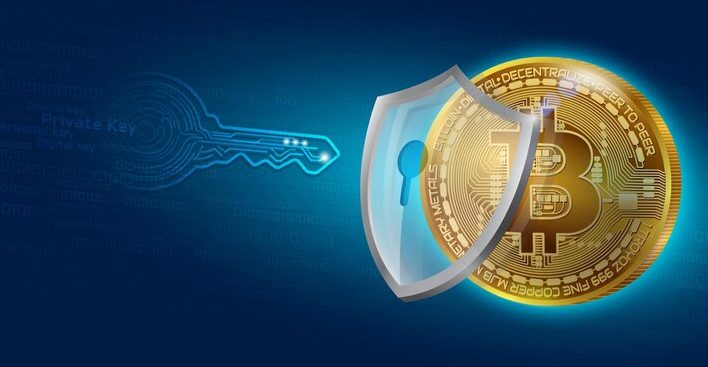Decentralized finance (DeFi) is revolutionizing how we view marketplaces, offering unparalleled transparency and autonomy. This article delves into the evolving world of DeFi marketplaces, examining their impact and potential to reshape the financial landscape. Exploring the latest DeFi trends, it’s evident that innovative tools, such as those found on platforms like atlasquantum.com, are revolutionizing automated trading in decentralized marketplaces.
Emerging Trends and Innovations
In the realm of decentralized finance (DeFi), emerging trends and innovations are shaping a new frontier for marketplaces. One of the most significant trends is the integration of artificial intelligence and machine learning into DeFi platforms. This technology offers enhanced predictive analytics, enabling smarter, data-driven decisions in market transactions. It’s not just about algorithmic trading; AI’s role in risk assessment and fraud detection is becoming increasingly crucial, contributing to more secure and efficient marketplaces.
Another innovation is the advent of cross-chain interoperability. As the DeFi ecosystem expands, the need for seamless interaction between different blockchain networks is paramount. Cross-chain solutions facilitate asset transfers and information sharing across various blockchains, overcoming the limitations of single-chain ecosystems. This interoperability is a game changer, promising a more cohesive and inclusive DeFi environment where diverse platforms can interact without friction.
Tokenization of assets is also redefining the scope of DeFi marketplaces. By converting real-world assets into digital tokens on a blockchain, DeFi platforms can now include a wider range of assets, from real estate to artwork. This expansion not only diversifies investment opportunities but also democratizes access to assets that were previously out of reach for average investors. Tokenization is breaking down barriers, allowing for a more inclusive financial landscape.
Decentralized autonomous organizations (DAOs) are reshaping governance in DeFi marketplaces. DAOs enable a level of democratization and community governance previously unseen. Through smart contracts, DAOs allow stakeholders to vote on critical decisions, ensuring that the marketplace aligns with the interests of its users. This participatory model of governance fosters a sense of community and trust, integral to the ethos of DeFi.
Lastly, the focus on sustainability and ethical finance within DeFi is gaining momentum. Recognizing the environmental impact of blockchain technologies, many DeFi projects are now prioritizing eco-friendly practices and aligning with global sustainability goals. This shift towards responsible finance reflects a broader societal push for sustainable practices and could position DeFi as a leader in ethical financial solutions.
Predictions for Decentralized Marketplaces in DeFi
The future of decentralized marketplaces in DeFi (Decentralized Finance) is poised to unfold along several transformative trajectories, shaped by technological advancements and evolving regulatory landscapes. One of the most prominent predictions is the increased mainstream adoption of DeFi marketplaces. As user interfaces become more intuitive and user-friendly, a broader demographic is expected to engage with DeFi platforms. This evolution will likely bridge the gap between traditional finance and decentralized models, drawing more institutional investors and casual users alike into the DeFi ecosystem.
Another significant trend is the potential for enhanced scalability and efficiency. Current DeFi platforms often struggle with scalability issues, leading to high transaction costs and slower processing times. However, with the ongoing development of Layer 2 solutions and new blockchain protocols, these marketplaces are expected to become much more efficient. This evolution will enable them to handle a higher volume of transactions at lower costs, making them more competitive with traditional financial institutions.
Integration with other emerging technologies, such as the Internet of Things (IoT) and artificial intelligence (AI), is anticipated to revolutionize DeFi marketplaces further. This integration could lead to more automated and intelligent financial services, where decisions on lending, borrowing, and investing are optimized using real-time data and predictive analytics. Such advancements could significantly enhance risk assessment and fraud detection, contributing to a more secure DeFi environment.
Regulatory clarity and frameworks will play a crucial role in shaping the future of DeFi marketplaces. As governments and financial regulators around the world begin to understand and appreciate the potential of decentralized finance, clearer regulations are expected to emerge. These regulations will likely provide much-needed legal frameworks, helping to protect investors and stabilize the market. Moreover, they could encourage greater institutional participation, further legitimizing and stabilizing DeFi marketplaces.
Finally, the evolution of decentralized marketplaces is likely to be marked by increased diversification and specialization. As the DeFi space matures, marketplaces specializing in specific sectors or types of assets could emerge. This specialization will allow for more tailored financial products and services, catering to the unique needs of various user segments.
Conclusion
As we venture forward, decentralized marketplaces in DeFi stand poised to redefine finance, blending innovation with inclusivity. Their trajectory promises a more democratized, efficient, and resilient financial ecosystem, marking a significant shift in the global economic paradigm.



